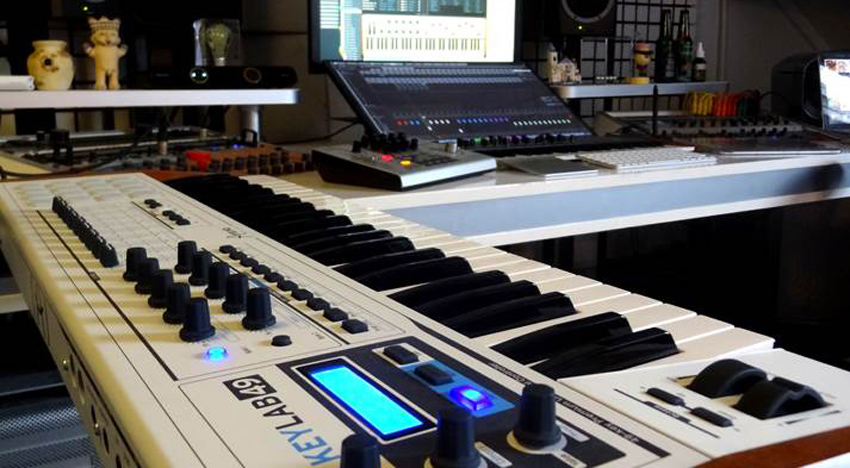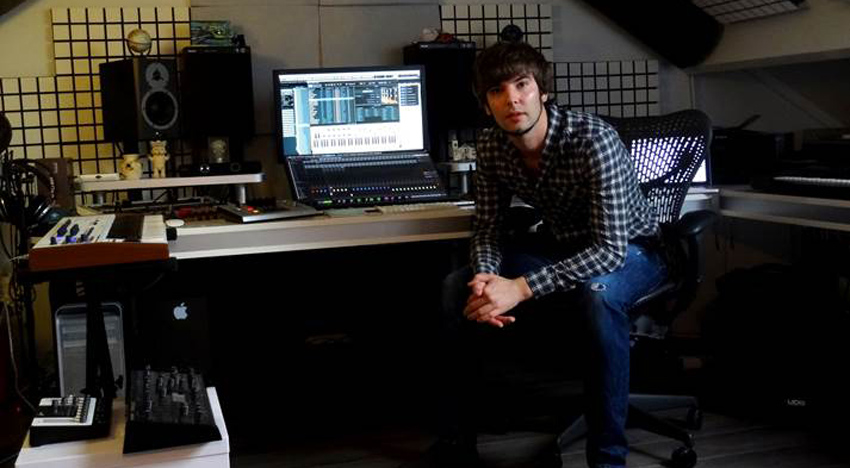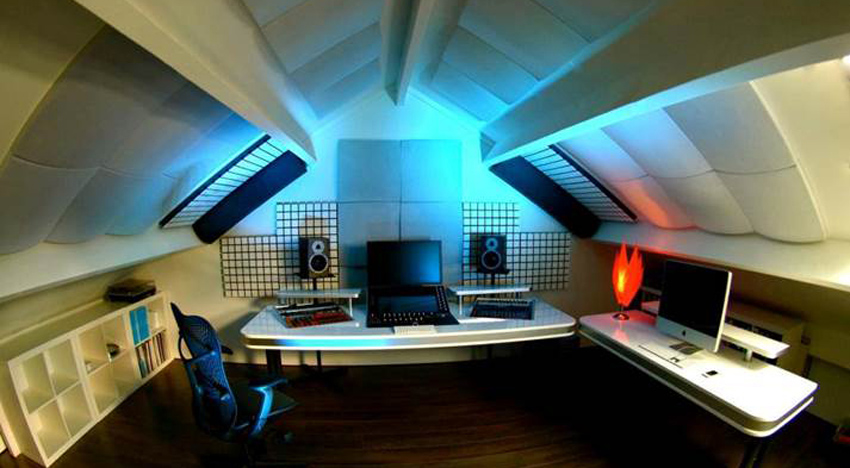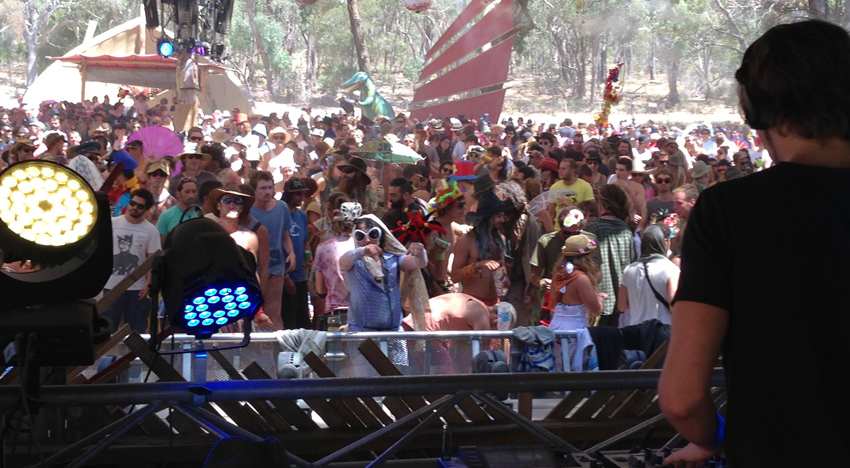Eelke Kleijn talks production, gear, adverts and piano lessons
The Dutch DJ/producer on dance music and expanding his horizons
"Even as a little kid, I was tuned into dance music," explains Rotterdam- based producer and DJ Eelke Kleijn. "I think it was that repetitive beat - the sound of the kick drum on those early Euro house tunes by Haddaway and Snap. Every eight-year-old likes to hear something go 'boom- boom-boom'!"
With the help of a Roland Groovebox and several years' worth of piano lessons, the teenage Eelke turned his beloved boom-boom- boom into a string of respected prog house releases - the first under his own name was 2003's drifting thumper 4.5 Billion Years - before hitting compilation paydirt with the 2006 anthem 8 Bit Era.
Regularly namechecked by the likes of Nick Warren and Dave Seaman, Kleijn began releasing a seemingly endless string of EPs, remixes and compilations - the latest, A Tale Of Two Lovers, on Eskimo Recordings, was recently released - before moving into the world of adverts, computer games and soundtracks.
"If music is just a beat and a bassline... Well, I feel there is something missing."
"I don't like to stand still," says the 30-year- old. "If you stand still, you get bored. And if you're bored, how can you expect people to get excited by your music?"
Do you still listen to a bit of Euro house?
"Ha! There were some cool tunes in the '80s and '90s. What I really liked about that era is that producers were not afraid of melody. Along with the beat, they liked a good tune, and that definitely made an impression on me. Even today, I find that if music is just a beat and a bassline... Well, I feel there is something missing. I am naturally drawn to the melodic aspect of dance music."
Was that interest in the 'musicality' of it what inspired you to take piano lessons?
Get the MusicRadar Newsletter
Want all the hottest music and gear news, reviews, deals, features and more, direct to your inbox? Sign up here.
"Every kid in school had to take piano at 12 years old. At first, I didn't like it, but within a few weeks, it all started to make sense. All those tunes I heard on the radio, now I could play them on the piano. OK, it didn't quite sound the same without the kick drum, but I just loved this idea of melody.
"I went home and pestered my parents for months: 'Please buy me a keyboard. Please buy me a keyboard.' Eventually they gave in, and I studied keyboard and piano until I was 19. I was pretty good, too. I got the highest grade in one exam and applied for the conservatoire! My only regret is that I stopped playing when I was 19. No matter what type of music you are making, I think that knowing an instrument can help. Once I moved into soundtracks and adverts, all those lessons became incredibly useful for me."

Your first dance tunes were made on a Groovebox, right?
"I used to work at a music shop, and they allowed me to take home a Roland Groovebox every weekend. I used to listen to popular hits on the radio and try to recreate them on the Roland. It wasn't long before I introduced a computer. One of my friends had a very, very early version of Reason and I thought, 'Wow! It's a whole studio in the computer.' For me, that has always been the attraction of Reason: It's complete - it's a whole unit. That makes it very easy to understand when you don't really know much about making music with computers.
"Of course, the real drawback in those early days was audio. Whenever I wanted to use audio, I had to put it into Cubase, then transfer it into a sampler in Reason. Eventually, I got to know Cubase and sort of ended up using it more and more. And I'm still using it.
"A lot of my friends use Logic, but I've never really dedicated the time to understanding it properly. I have an Ableton setup, too, which I use for live work and sketching out basic song ideas when I'm on tour. Ableton is my favourite tool for getting a 30-second groove, but I always have a hard time finishing a song. The Session View is perfect, but as soon as I switch to Arrangement, I get tied up in detail and I seem to lose the creative spark. That's usually the point where I export everything to Cubase.
"I'm not saying Cubase is without problems..."
What would you change?
"Something that is long overdue is a proper MIDI Learn mode, like the ones in Ableton and Studio One. That should have been implemented years ago!"
In other interviews, you've described your early style as progressive house
"I was listening to lot of Sasha and John Digweed; that was the sound I had in mind. And, to be honest, I held onto that sound for a long time. It's only in recent years - as dance music began to get mixed up into all these different labels - that I noticed a change in my music. These days, I think it's more of a techno and deep house sound."
We dig the white decor in your studio setup! It's in your house, right?
"Yeah, it's in the loft. I always work at low volumes, but I did install some acoustic panels in there. I have nice neighbours, and I don't want to annoy them too much."

What's on the computer?
"Cubase, Ableton... and Studio One. I was on the verge of completely changing over to Studio One last year, but there are still one or two small bugs they need to iron out. Apart from that, it's a fantastic program.
"There's a lot of Native Instruments stuff, like Absynth and Guitar Rig... Arturia's Analog Lab. Absynth is probably the hardest thing to program in my whole studio, but whenever I need a sound that is out of the ordinary, I will always turn to Absynth.
"Some of my VSTs are there because they can give me great analogue sounds - u-he's ACE, for instance, with that modular layout - but some are there so I can go in all directions. Omnisphere is probably on every track and arrangement of mine. You've got the dance elements and the solid bass sounds, but there are also incredible effects and whooshes and atmospheres, which make it perfect for film work. It is a brilliant workhorse VST."
What about drums?
"Battery is the one VST I couldn't live without. I've been using it since the very early days, and I don't think I've ever found anything that works so efficiently... they've created something that is so intuitive and easy to use. It allows you to create and sculpt sounds that are very specific to a track; you can alter every aspect of the sound and arrange the cells exactly how you want them.
"I also use those D16 plugins, the Nepheton and the Drumazon - the 808 and 909 emulators. I'm not lucky enough to own an original piece of Roland hardware, but these are the closest that digital technology has ever got."
Any hardware in the studio?
"Quite a bit, actually. My Nord Lead 2X has been with me from the very beginning, along with my Novation Supernova. About 80% of my first album was done completely on the Supernova. The filters on there are so analogue; you can really drive them hard.
"For a while, there was also a Novation Bass Station in the studio; both great-sounding machines. I don't use the Supernova so much these days, but I would never get rid of it. Some pieces of equipment are just too close to your heart. One day soon, it will be connected back into my setup"

Can you talk us through an average day in the studio? Do your tracks always start out with drums and bass, or do you tend to get things started from a melodic idea?
"The most important thing for me in the studio is to reinvent how I work. Like I said before, I get bored very easily. If it looks like I am going down the same musical path, I want to take a detour. For instance, I was in Australia recently, and I heard a Hang drum player. That immediately took my imagination somewhere and, as soon as I was back home, I started looking for a Hang drum player.
"I think that's why I enjoy working with adverts and film soundtracks so much. It is a different set of rules and a different set of boundaries. It forces you to use fresh musical ideas."
Were you worried about moving into ad-land? Y'know... 'Eelke Kleijn Sells Out!'
"Yeah, I suppose so, but I have to look at my career realistically. It would be great to think I can carry on making dance music until I'm 45 or 50, but what happens then? There will come a time when I am out of touch with what is happening in the clubs, but I would still like to be involved with music because I love all kinds of music, not just dance. Is it such a crime for me to move into adverts or soundtracks?
"There is another reason: At the moment, the DJ fees are good, but the money you make from the actual process of making music is at an all-time low. If I can get some money from an advert, that's a good way to compensate for that. These days, you have to be practical if you want to make a living from music.
"Creatively, working on ads or soundtracks is interesting. A company comes to you with a very definite idea and maybe even some demo tracks to give you a sense of the atmosphere they need. To me it's like a puzzle - I have to put all those pieces together and create something new."

Does it change the way you work?
"This might sound strange, but after a couple of months of working with ads, I sometimes find it very difficult to go back to making my own tunes. Suddenly, I have all this freedom in the studio, but I don't know where to start! That's when you have to go back to basics.
"In this modern, digital age, that is not always easy. There are so many sounds and plugins available, and we feel that we have to use them all. I certainly noticed that on my early releases - I tended to make them very busy. I was scared that there wasn't enough happening, so I would load the song up with sounds and hooks and tunes. I wanted to catch the listener's attention straight away.
"As I got a bit older, I wondered if that might be a weakness for me. There were times when I was listening to a song and thinking, 'There is something not quite right here.' At first, you try to add more and more to make it work, but I eventually started to mute elements of a song and realised that was the answer. It's that old cliché: less is more.
"The confidence to do that can only come with experience. It's something you learn as you spend more time in clubs. A tune can run on a little bit longer - people want the groove to keep going. In dance music, it is not a crime to take your time."
Eelke Kleijn's EP A Tale of Two Lovers, is out now on Eskimo.


Computer Music magazine is the world’s best selling publication dedicated solely to making great music with your Mac or PC computer. Each issue it brings its lucky readers the best in cutting-edge tutorials, need-to-know, expert software reviews and even all the tools you actually need to make great music today, courtesy of our legendary CM Plugin Suite.
“I’m looking forward to breaking it in on stage”: Mustard will be headlining at Coachella tonight with a very exclusive Native Instruments Maschine MK3, and there’s custom yellow Kontrol S49 MIDI keyboard, too
“Turns out they weigh more than I thought... #tornthisway”: Mark Ronson injures himself trying to move a stage monitor










